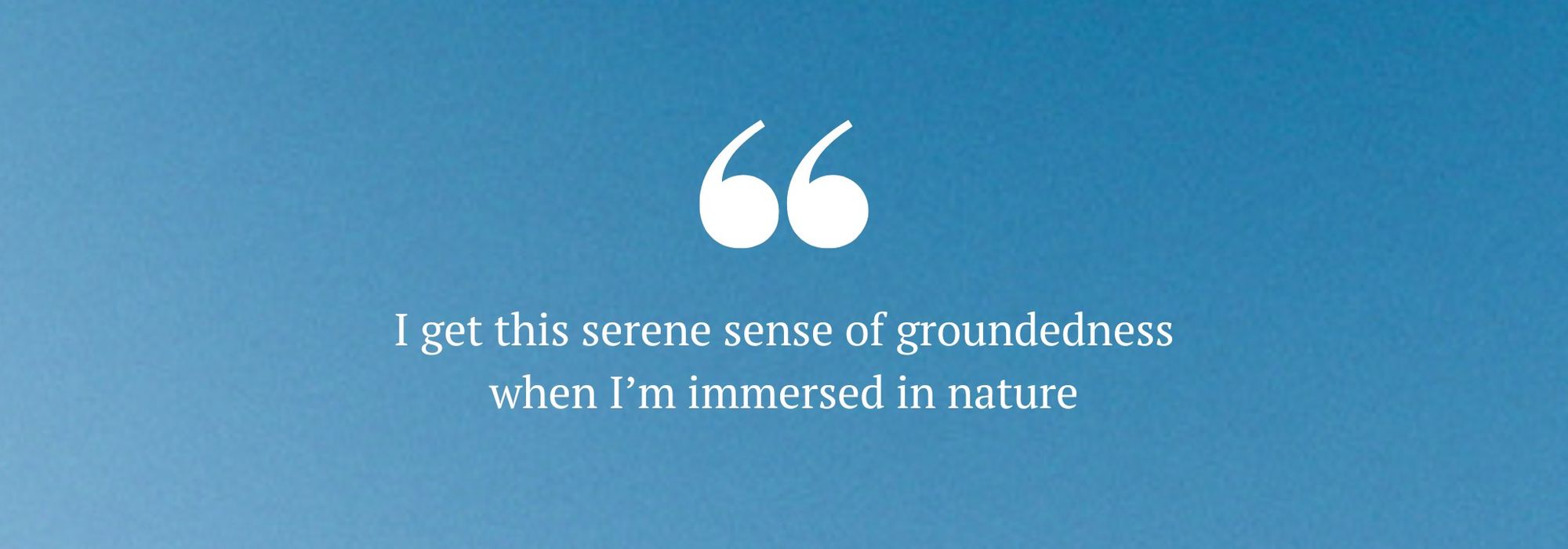
Rewilding is a trend that’s here to stay, but what can the movement teach us about the world around us and life itself?
Something unusual was going on at the national flower shows this year. Among the ornamental plants, with their impossibly bright blooms and show-stopping qualities, there was something a little bit more familiar, a little bit wilder, about the gardens that faced the judges.
At the RHS Chelsea Flower Show 2023, four of the 12 show gardens featured plants that you or I would usually brush off as ‘weeds’ – including brambles, thistles, and knapweed. Native nettles, salvaged rocks, and lots and lots of green came with calls from the Royal Horticultural Society to rebrand the commonly resented ‘weeds’ as ‘hero plants’, perfect for cultivating a diverse and vibrant ecosystem.
“We are relaxing the way we garden,” said garden designer and BBC presenter Joe Swift, while reflecting on his highlights of the week at Chelsea. “There is no manicured lawn anymore, that feels like a significant step forward. The environment, wildlife, and biodiversity are at the core of a lot of these gardens.”
“And I think we are learning to combine with so-called rewilding to make a synthesis, something that comes together that’s really rich and good,” added the horticulturalist and broadcaster Monty Don.
It’s become a bit of a buzzword in the gardening world, but rewilding is more than just a trend. The UK has a sorry relationship with its native flora. According to research published in Plant Atlas 2020, half of Britain and Ireland’s native plants have declined over the past 20 years, with ancient arable wildflowers declining by a shocking 62% since the 1950s, due to traditional grasslands being reseeded or over-fertilised.
Overhauling our entire way of living is, in reality, the main step we need to take to protect our planet and its inhabitants, but rewilding is a part of this – referring to activities that aim to restore and protect natural processes, and wildlife. On a national scale, this looks like the Carrifran Wildwood, in Dumfries and Galloway. Set in a 1,600-acre ice-carved valley, the Wildwood project was started by a group of friends who bought the glen back in 2000, and have since planted more than 600,000 native trees. Also, the Ashton Estate in Northamptonshire, the former home of Dame Miriam Rothschild, where rewilding efforts have sought to restore a ‘dynamic mosaic of vegetation’, which includes a restored lake and naturally regenerating woodlands.
On a smaller scale, native wildflower seed boxes line the shelves of garden centres and supermarkets. ‘No Mow May’, a campaign that encourages us to leave our lawns well alone for the month of May, to gift the habitat to pollinators, tackle pollution, and lock away atmospheric carbon below ground, is a growing movement in the UK. And an interest in gardening boomed during the pandemic, with many continuing the hobby today.
All these efforts, both great and small, make a difference. But while they bring individual plants back to life, they also have a knock-on effect on the full ecosystem – all the way from humming hoverflies to human beings.
“Nature innately feels like home to me. I get this serene sense of groundedness when I’m immersed in nature. Listening to birdsong or watching the canopy of tree leaves on a sunny day, it feels like everything is OK,” says Catri Barrett, a life coach who has ADHD, reflecting on how rewilding has helped her.
When Catri received an ADHD diagnosis aged 33, she saw it as the most validating experience of her life. But the many years living without a diagnosis meant her overall mental health declined with time, and she went on to develop anxiety, depression, eating disorders, and struggled with self-harm and suicidal ideation. But, she says, nature has always offered a rejuvenating solace.

“I love living in London, but I sometimes struggle with the intensities that come with city life as an ADHDer. All the people, the sounds, smells, and busyness can often intensify my ADHD symptoms, and fuel feelings of overwhelm,” Catri says. “Finding nature in the city helps me find balance. I’ve created an ‘urban jungle’ in my home with loads of houseplants, and I live right next to a park so that I am still surrounded by nature inside and out.
“I find that nature facilitates mindfulness like nothing else. Whether it’s watching the sun cast shadows from my houseplants during the day, or tending to my seedlings, nature is the anchor that brings me out of the busyness of my mind and back into the present moment.”
And Catri is not alone. At the 2022 Chelsea Flower Show, the mental health charity Mind collaborated with eight-time RHS Chelsea gold medal winning designer Andy Sturgeon, to create a spectacular garden. The venture came alongside a Censuswide survey, which found that nearly two-thirds of UK adults say spending time gardening or in nature helps their mental health, with many respondents pointing to the sights, smells, and colours as stress-relieving drivers.
The rewilding movement encourages natural spaces to thrive, be they vast acres of reclaimed spaces, or window boxes ripe for pollinators. But there’s also a philosophy in this approach that teaches us something about life more broadly, as Catri explains.
“In essence, rewilding means allowing nature to do its thing. To me, this means for individuals to integrate and reconnect to their inner nature and our natural world more – to rewild ourselves and our focus in the hope to take back what modern life and technology too often distract us from. To prioritise the natural processes and cycles that come from the different ecosystems. It means, as humans, we stop seeing ourselves as separate from the natural world, and to remind ourselves that we are all reliant on one another.
“I also really like applying the rewilding approach as a metaphor for individuals with ADHD, and applying this thinking to myself. When you relinquish control and stop trying to force your inner nature to look a certain way, when you see that there’s beauty and things to celebrate in the weeds, you can allow yourself to flourish.”

